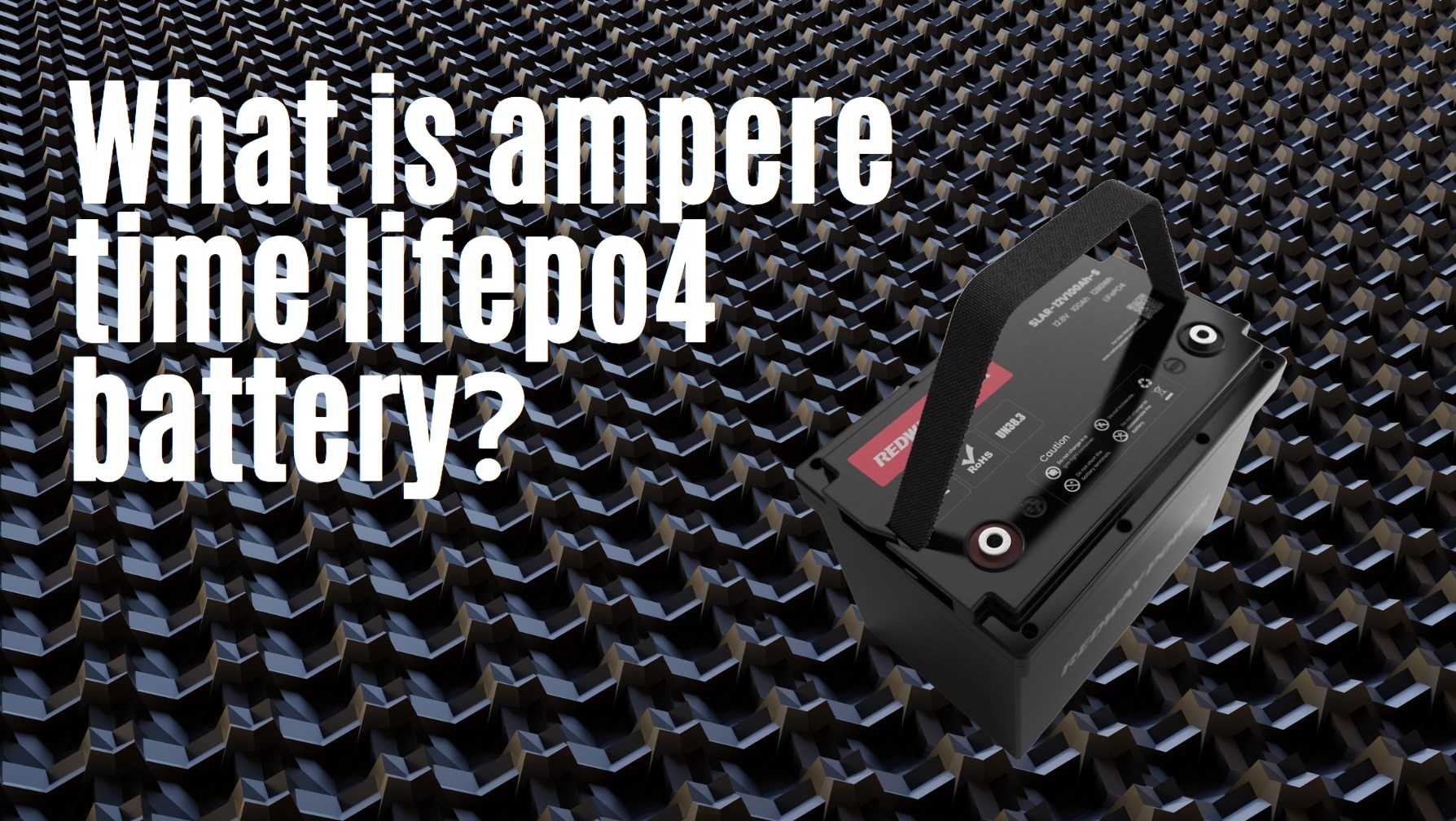Are you in search of a reliable and efficient battery for your electronic devices? Look no further than the Ampere-Time LiFePO4 battery! This high-performance power source offers numerous benefits, including longer lifespan, faster charging times, and increased safety. In this blog post, we will delve into what exactly Ampere-Time is and how it works, along with its impressive specifications. Stay tuned to learn more
In the ever-evolving world of energy storage, the Ampere-Time LiFePO4 battery stands out as a revolutionary power source. Renowned for its high efficiency, durability, and superior performance, this battery technology is increasingly becoming the go-to choice for a variety of applications. This article delves into the intricacies of Ampere-Time batteries, highlighting their benefits, working principles, specifications, and guidelines for selecting the right battery to meet your specific needs.
What is Ampere-Time?
Ampere-Time (Ah) is a critical measurement unit in the realm of batteries, indicating the total charge a battery can deliver over a specified period. For instance, a battery with a rating of 10Ah can provide 1 ampere of current for 10 hours or 2 amperes for 5 hours. This metric is essential for understanding the capacity and potential usage duration of battery-powered devices.
Wholesale lithium golf cart batteries with 10-year life? Check here.
Key Characteristics of Ampere-Time LiFePO4 Batteries
- High Efficiency: These batteries offer higher discharge rates compared to traditional lead-acid batteries.
- Lightweight and Compact: Despite their power, Ampere-Time batteries are more lightweight and compact, making them ideal for portable applications.
- Rechargeable: This feature ensures long-term cost savings and environmental benefits.
How does Ampere-Time work?
Ampere-Time (Ah) is a unit of charge capacity used to measure the amount of electrical charge stored in a battery. It represents the flow of current over time and indicates how long a battery can deliver power before it needs recharging.
Want OEM lithium forklift batteries at wholesale prices? Check here.
To understand how Ampere-Time works, we need to know that batteries store energy as chemical potential. When connected to an external circuit, this stored energy is released as electrical current that can be used to power devices or machines.
The Ampere-Hour rating refers to the total amount of charge that a battery can deliver during one hour at its rated voltage. For example, if you have a 100 Ah Lifepo4 Battery with 12 volts nominal capacity, it can supply up to 1200 Watts for one hour or 600 watts for two hours.
It’s important to note that different factors like temperature and discharge rate affect the actual performance of Ampere-Time batteries. As such, manufacturers often provide specific data sheets outlining their product’s discharge rates under various conditions.
In summary, knowing how Ampere-Time works helps us make informed decisions when choosing the right battery for our needs based on factors like usage patterns and environmental conditions.
Specifications of Ampere-Time (Ah) Batteries
Capacity and Voltage Range
Ampere-Time LiFePO4 batteries typically range from 50Ah to several hundred Ah, with voltage ratings between 3.2V and 3.6V per cell. This high capacity allows for significant energy storage in compact designs, suitable for diverse applications.
Performance Metrics
These batteries exhibit exceptional cycle life, often lasting thousands of charge-discharge cycles without significant capacity degradation. They also support high discharge rates, ensuring stable voltage output under heavy loads, critical for demanding environments like solar energy systems.
Choosing the Right Ampere-Time Battery
Factors to Consider
- Voltage and Capacity Requirements: Match the battery’s voltage and capacity to the device or application’s needs.
- Discharge Rate: Select a battery capable of sustaining the required discharge rate without voltage drops.
- Environmental Compatibility: Ensure the battery operates efficiently within specified temperature ranges.
- Cycle Life: Opt for batteries with sufficient cycle life to meet long-term usage demands.
Ampere Time (Li Time) 12v 100ah LiFePO4 100A BMS Drop In Lithium Battery Review
Conclusion
To sum it up, Ampere-Time is a reliable and efficient battery technology that provides numerous benefits for various applications. Its high energy density, long cycle life, and low maintenance make it an excellent choice for many industries such as automotive, renewable energy systems, and medical devices.
When choosing the right Ampere-Time battery, consider your specific needs in terms of capacity requirements and discharge rates. Always consult with experts to ensure you’re getting the best value for your investment.
Ampere-Time batteries are a dependable solution for powering your equipment while ensuring long-lasting performance. With its exceptional quality and features, Ampere-Time is undoubtedly one of the most promising technologies that will drive innovation in the years ahead.








